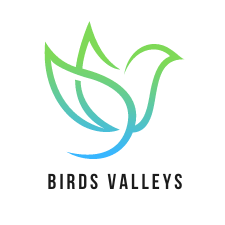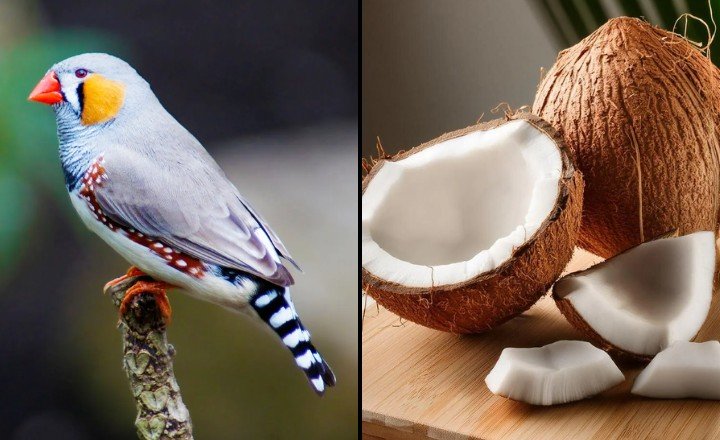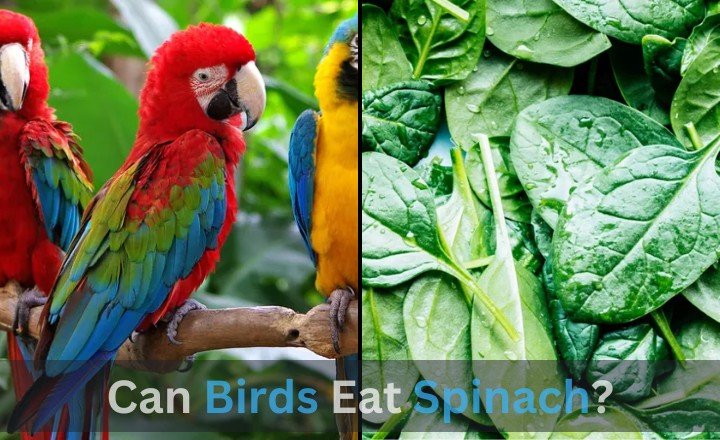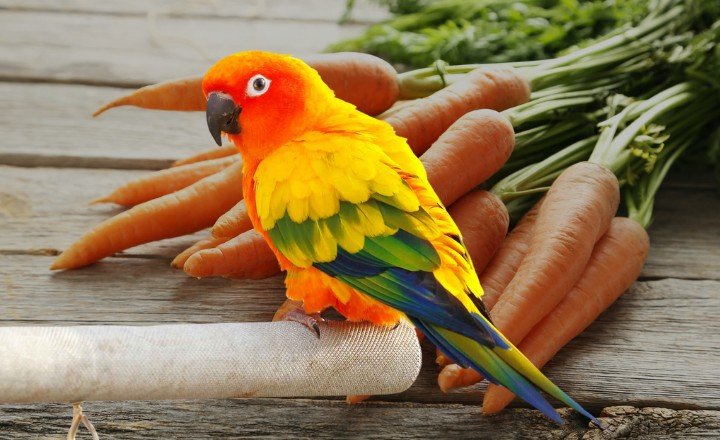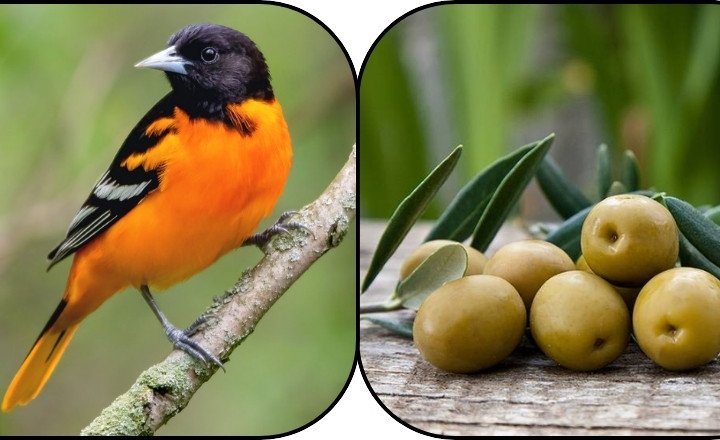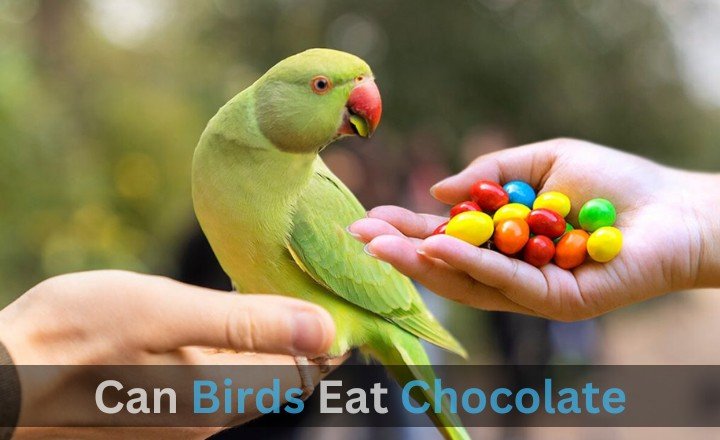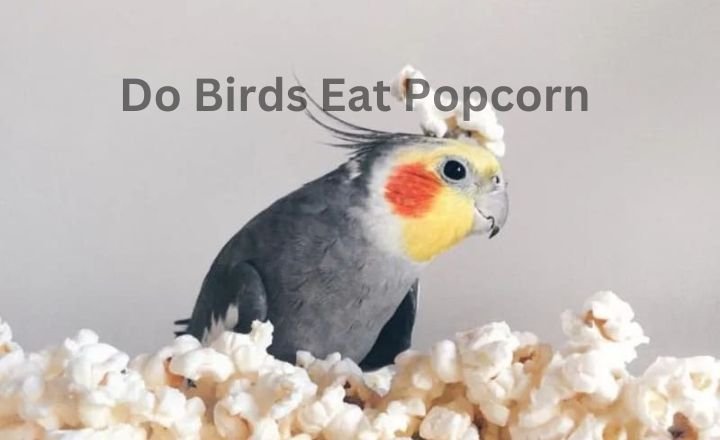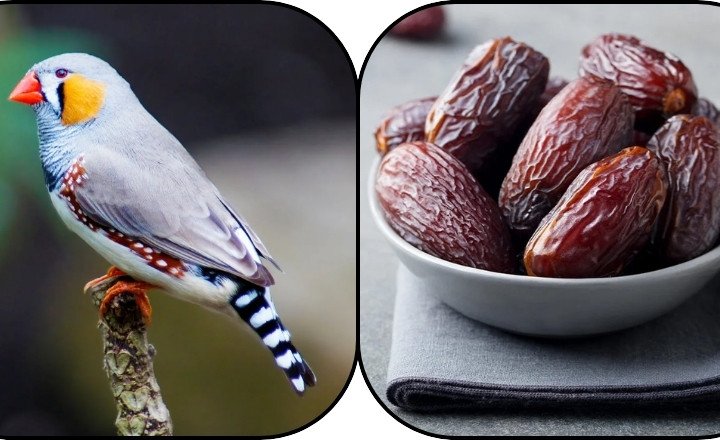Can Birds Eat Coconut? Is It Healthy For Them?
I am often captivated by the diverse diets of our feathered friends. Each species exhibits fascinating eating habits, from the vibrant hummingbirds that dart around nectar-filled blooms to the playful jays that scavenge for nuts and seeds. As a birdwatching enthusiast, one question has fluttered through my mind during many serene mornings spent in nature’s embrace, Can birds eat coconut? With its hard shell and rich, fibrous interior, coconut seems an unlikely treat for our avian companions.
In this article, we explore this intriguing topic uncovering which birds can safely enjoy coconuts and how you might incorporate this exotic fruit into your backyard feeding routine. Through this journey, we’ll satisfy our curiosity and deepen our appreciation for the incredible adaptability of birds in their quest for sustenance.
What is Coconut?
Coconuts are unique in the plant kingdom, classified botanically as a fibrous one-seeded drupe rather than a true nut. This distinction reveals their extraordinary structure, the outermost layer, known as the exocarp, is smooth and green or yellow when ripe, underneath lies the coarse, hairy mesocarp, and finally, the hard shell encases the edible white flesh and refreshing coconut water inside. With this complex anatomy, coconuts serve various purposes from culinary delights to natural remedies and even crafting materials.
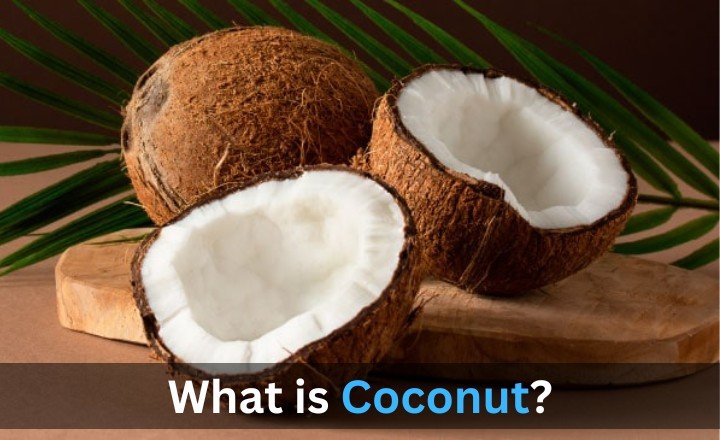
Beyond their delicious taste and health benefits, coconuts have a fascinating ecological role. They thrive in coastal regions, largely due to their ability to float on water and disperse seeds over great distances. Once washed ashore, they can sprout in nutrient-rich sand without requiring much soil intervention.
Can Birds Eat Coconut?
Coconut can be a delightful and nutritious treat for many bird species, including the vibrant Red Birds and graceful White Birds that often grace our gardens. The rich flesh of the coconut is packed with healthy fats and a variety of essential nutrients, making it a suitable dietary addition in moderation. It’s essential to serve it in the right way, fresh coconut meat is preferable over processed varieties, as additives can harm these feathered friends.
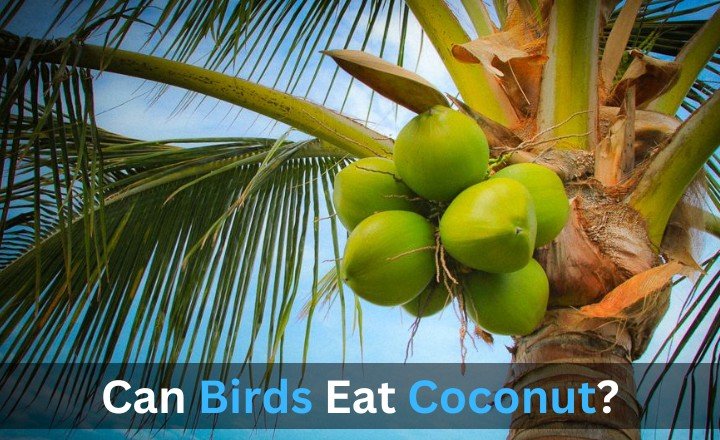
Offering coconut as part of their diet can spark interesting behaviors among red birds and white birds alike. These adventurous feeders may display tactile playfulness while pecking at the hard shell or exploring the gritty texture of fresh coconut flesh.
Is Coconut Healthy For the Birds?
Its suitability varies depending on the specific bird and their dietary needs. For example, while some birds like parrots enjoy the rich fats and nutrients found in fresh coconut flesh, others may not benefit as much from it. Hawks and Owls, typically carnivorous, wouldn’t seek out coconut as part of their diet. Offering coconut shavings or flakes can attract other smaller birds that might share the habitat.
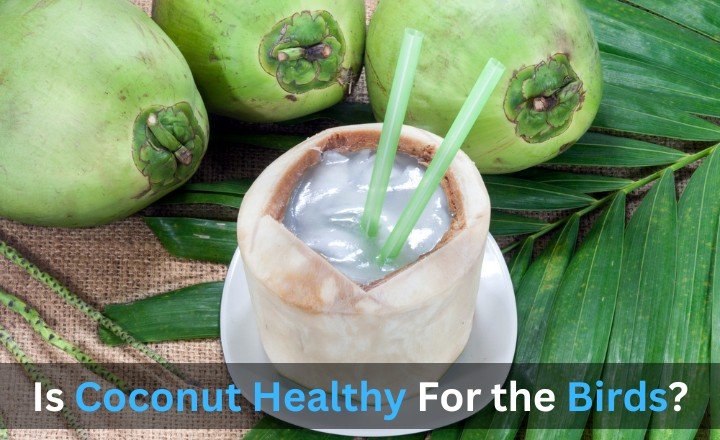
When providing coconut for wild birds, it’s essential to ensure that it’s unsweetened and free from additives. Fresh coconuts offer a great source of Hydration because of their high water content this can be particularly beneficial during hot weather or dry seasons when natural water sources are scarce.
Advantages of Coconut For the Birds
Coconut offers a range of benefits for our feathered friends that go beyond mere sustenance. The unique structure of coconut meat, rich in healthy fats and moisture, serves as an excellent source of energy for birds, particularly during the breeding season when they require extra calories.
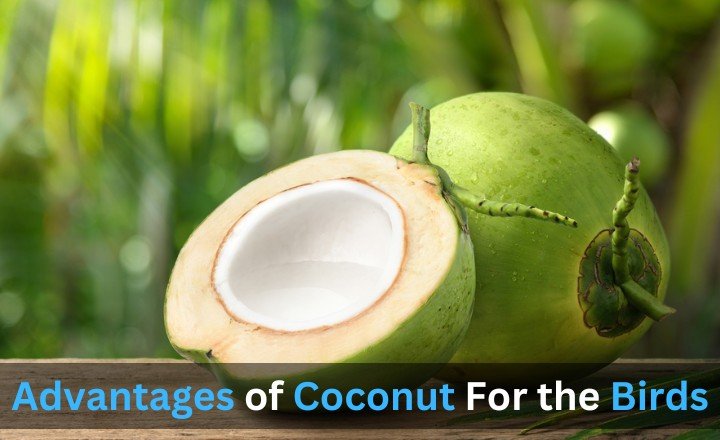
In addition to providing immediate nutrition, the texture of dried coconut can stimulate natural foraging behaviors akin to how they’d interact with Popcorn kernels scattered in their environment or Persimmons hanging from branches. These activities promote physical health while keeping their minds sharp and engaged.
Coconuts contain essential nutrients like manganese and potassium that support avian metabolism and bone strength. Birds pecking at coconuts not only get these nutritional benefits but also enjoy a thrilling experience as they crack open the hard shell behavior reminiscent of cracking open a delicious persimmon a favorite among many species.
Disadvantages of Coconut For the Birds
While coconut may seem like a delightful treat for birds, there are significant drawbacks to consider. One major concern is the high fat content found in coconut meat and milk. While some fats are essential for a bird’s diet, excessive consumption can lead to obesity and related health issues, particularly in sedentary species. Birds that rely heavily on coconuts may also neglect other vital food sources, resulting in nutritional imbalances over time.
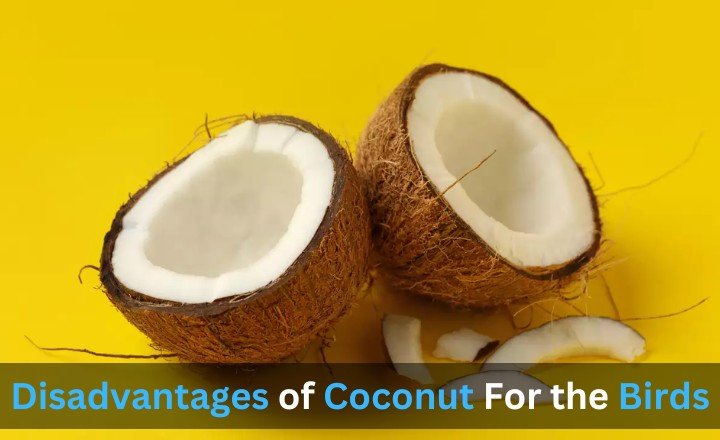
The hard shell of coconut poses a challenge for many bird species. Not only does it require strong beaks to access the nutritious inner meat, but this difficulty can limit feeding opportunities for smaller or less robust birds. When once-living coconuts fall from trees or are discarded improperly, they can create hazards obstructing habitats or even causing injury during turbulent weather conditions.
Tips For the Bird Owners
Feeding coconut to your feathered friends can be a delightful and nutritious treat, but it’s essential to do so mindfully. Opt for fresh coconuts whenever possible; they’re more nutritious and less processed than packaged coconut products. Split the coconut in half and offer both the flesh and water to your birds. The natural sweetness of the coconut can entice even picky eaters, encouraging diverse diets among seed-loving species.
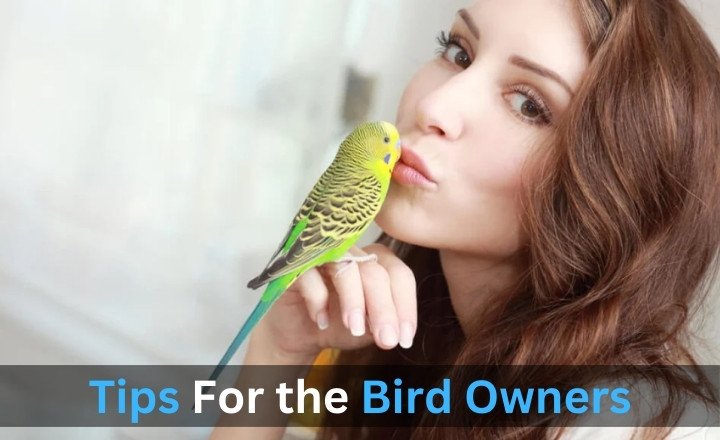
Moderation is key. High in fats, overindulging might lead to weight gain or digestive issues in birds. To enhance the feeding experience, consider incorporating coconut into foraging toys or scattering small pieces throughout their enclosure; this not only stimulates their instincts but also prevents boredom. Always ensure that any leftover pieces are removed promptly to avoid spoilage after all, a clean environment is just as crucial to your bird’s health!
‘Can Birds Eat Coconut’ Conclusion
Coconut can be a nutritious and enjoyable treat for many bird species, providing essential fats and fibers that contribute to their overall health. It is important to offer coconut in moderation and ensure that it is prepared properly to avoid any potential health risks. Always opt for fresh or unsweetened dried coconut, steering clear of added sugars or preservatives that could be harmful. Observe your birds’ reactions to coconut, as individual preferences may vary among different species.
FAQs
Can I Give Coconut To My Bird?
Yes, you can give them a coconut to eat, but never give them a dried one, as it can swell up in their stomach.
Is Coconut Milk OK For Birds?
Yes, it’s ok for the birds. Birds love it, you can also mix it up with some water to thicken it. All the birds love this unique type of food.
Is Coconut Fat Good For Birds?
Coconut oil is higher in saturated fat, which is good for the birds. It should be fine, there is not much to be worried about.
